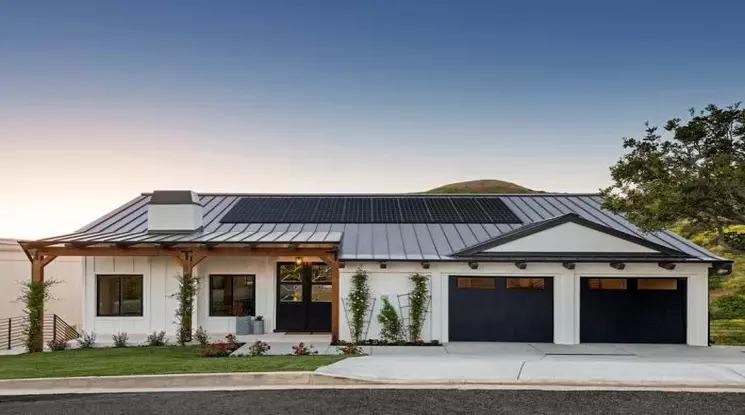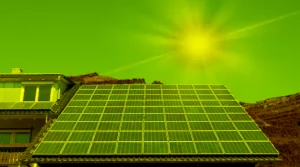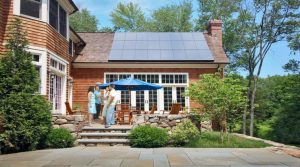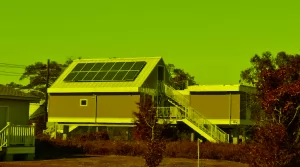In recent years, the adoption of solar panels has surged across the United States, with homeowners looking to reduce their carbon footprint and save on energy bills. Virginia Beach, with its ample sunshine and commitment to sustainability, is no exception to this trend. If you’re a homeowner in Virginia Beach, you might be wondering whether your house is a good candidate for solar panels. In this blog, we’ll explore the factors that determine if your home is suitable for solar panels and how you can make an informed decision.
Sunlight Exposure
The first and foremost factor to consider when determining your house’s suitability for solar panels is its sunlight exposure. Solar panels require sunlight to generate electricity efficiently. In Virginia Beach, you’re in luck, as the city boasts plenty of sunshine throughout the year. However, you’ll need to assess the specific conditions around your property. Factors to consider include:
a. Roof Orientation: Solar panels are most effective when installed on south-facing roofs. If your roof faces south or southwest, you’ll receive optimal sunlight exposure. East and west-facing roofs can also work but may be slightly less efficient.
b. Shading: Check for any obstructions that could cast shadows on your roof throughout the day. Trees, nearby buildings, or chimneys can reduce the efficiency of your solar panels.
c. Roof Angle: The angle of your roof can affect solar panel performance. Ideally, your roof should have a slope between 15 and 40 degrees to maximize sunlight exposure.
Roof Condition
Before you install solar panels, you should assess the condition of your roof. Solar panels can last for decades, so it’s essential to ensure your roof can support them without needing major repairs during that time. A few things to consider:
a. Age of Roof: If your roof is relatively new, it’s more likely to withstand the installation of solar panels. However, if your roof is nearing the end of its lifespan, it might be wise to replace it before going solar.
b. Roof Material: Solar panels can be installed on various roofing materials, including asphalt shingles, metal, and tile. Consult with a roofing professional to ensure your chosen material can support solar panels’ weight.
c. Roof Integrity: Have a professional roofer inspect your roof for any signs of damage or weaknesses. Address any necessary repairs before installing solar panels to avoid potential complications.
Local Regulations and Incentives
Virginia Beach, like many other areas, may have specific regulations and incentives related to solar panel installations. It’s essential to familiarize yourself with local rules and incentives, such as:
a. Permitting Requirements: Check with your local government to understand the permitting process for solar panel installations. Ensure you meet all necessary requirements.
b. Financial Incentives: Virginia offers various incentives, including tax credits and rebates, to encourage solar adoption. Research these incentives to see how they can make solar panels more affordable for you.
c. Net Metering: Net metering allows you to sell excess energy generated by your solar panels back to the grid, providing potential savings on your energy bills.
Energy Usage
Assess your household’s energy usage to determine how much electricity you need to generate through solar panels. A home with high energy consumption may require a larger solar panel system. You can gather this information from your utility bills or by using an online energy calculator.
Budget
Installing solar panels in Virginia Beach is an investment, and it’s crucial to budget for both the installation costs and ongoing maintenance. While solar panel prices have decreased in recent years, they still represent a significant expense. Consider financing options, such as solar loans or leases, to make the upfront costs more manageable.
Environmental Impact
Lastly, consider the environmental impact of going solar. By reducing your reliance on fossil fuels and generating clean energy, you’ll contribute to a greener future and lower your carbon footprint.
Conclusion
Is your house a good candidate for solar panels in Virginia Beach? The answer depends on various factors, including sunlight exposure, roof condition, local regulations, energy usage, budget, and your commitment to sustainability. If you’re interested in making the switch to solar energy, it’s advisable to consult with a reputable solar installer in Virginia Beach. They can assess your home’s suitability, provide cost estimates, and guide you through the process of going solar. With the right information and a commitment to clean energy, you can transform your house into an eco-friendly and cost-effective home.




